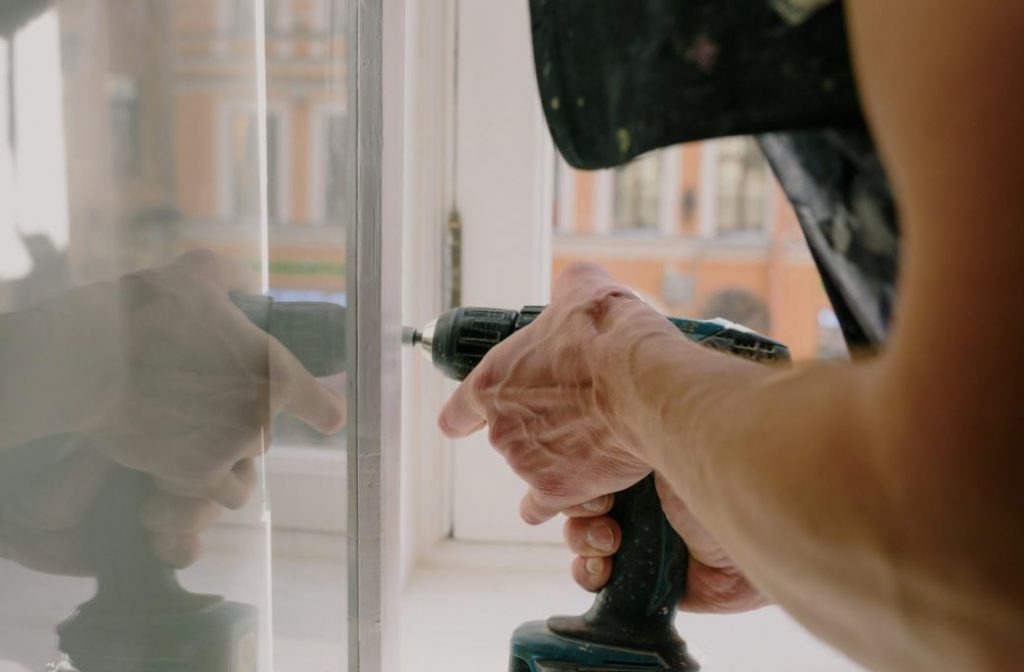According to the Department of Energy, heat transfer via your home’s windows account for up to 30% of the heating and cooling expenses for your house.
One way to save when it comes to heating and cooling is by installing insulated glass windows. Check out the pros and cons of insulated glass windows here.
Table of Contents
What Is an Insulated Glass Window?
Insulated glass windows are types of thermal windows. They consist of two or three panes of glass in a sealed window unit, called an insulating glass unit (IGU).
Spacers keep the pieces of glass apart, and argon gas occupies the space between them. This odorless, colorless gas helps minimize the transfer of heat through the glass.
The sealed frame helps keep everything in place to maximize the benefits of this type of glass.
The Advantages Of Insulated Glass Windows
Thermal insulation and the cost savings associated with this type of window are the best-known qualities of insulated glass. Yet, there are several other pros associated with these windows.
These are:
Versatility
You can choose from a wide range of sizes and different window frames when you opt for insulated glass windows. They’re equally suited for home and business use too.
Some frame options include fiberglass, wood, and vinyl to suit any design style. Different types of frames can also affect how much energy you save with any type of window.
Aluminum’s a lightweight and easy-to-maintain material, but it’s an extremely poor insulator. Wood and composite wood both have good structural and thermal properties.
Fiberglass frames are better for insulation than both the above materials and vinyl is the best insulator of all.
Noise Reduction
Since you’ll have extra panes of glass between you and the outside world, multi-paned glass windows help damp down noises from outside.
That makes them ideal for offices and homes located near busy roads, schools, or other noisy areas.
Windows will never provide 100% soundproofing to a room, but you can maximize noise reduction with thicker glass and wider spaces between them.
Environmentally Friendly
Since insulating windows help keep your home or business warm in winter, you won’t need to use your central heating as much. This means you’ll cut down on the amount of energy you use for heating your spaces at this time of year.
You can also apply a low e coating to the exterior surface of the window to keep your rooms cooler in summer. This means you’ll lower your electricity use for cooling, too.
Any innovation that helps cut down on electricity use, helps the environment by reducing the carbon emissions associated with global warming.
Protects Your Furniture
Sunlight streaming into your home or office is aesthetically pleasing, but it will eventually cause your furniture, rugs, and carpet to fade. Wooden furniture may eventually crack when exposed to the sun for an extended time.
Since these windowpanes block the sun’s direct rays, they protect your office furniture from the harm caused by direct sunlight.
Safety and Security
Double and triple glazed windows are more difficult to break than regular windows. That means they offer added protection against breakage and burglaries.
Disadvantages Of Insulated Glass Windows
There are only a few drawbacks associated with insulated glass windows. These are the main ones:
Cost of Installing Insulated Windows
Cost is the major aspect that puts homeowners off installing these types of windows. There are more panes of glass, seals, insulating gas, and desiccant involved in constructing these windows.
So, it’s only expected that they’ll cost more than twice as much as regular windows.

You’ll also need to pay a specialist to install your thermal windows. This is to ensure they’re sealed tightly in place to prevent leaks. You’re bound to pay extra for these services.
The average cost to install insulated windows is between $270 and $318 for a basic window. If you want something more luxurious, you could pay up to $606 per window.
On the bright side, you’ll recoup your costs within 14 years, thanks to savings on your energy bills. In this respect, insulated glass windows compare favorably to other energy-saving initiatives like solar. You’ll need to wait 20 years before you see a return on installing solar panels.
Lack of Repair Options
If you break a regular window, you can simply replace the damaged piece of glass.
You can’t repair insulated glass windows once they’re broken. You’ll need to replace the entire unit.
Fog Between the Panes
Occasionally, one or both of the seals of the insulating glass fail, allowing moisture to seep between the panes.
Usually, a desiccant in the window spacer takes care of any resulting fogginess. Yet, when this becomes saturated, you could end up with clouded views through your windows.
Find out more about insulated glass windows fog and how to deal with it.
Traps Heat
Insulated glass traps heat inside your home or office. So, things can get a little too toasty in the summer months. Ultimately, this means you’ll use your air conditioner more often.
Adding glass film to the exterior of your windows can help alleviate this problem.
Make Great Choices for Your Home
There’s no doubt that the pros far outweigh the cons when it comes to insulated glass windows. So, if you can afford them, it’s worth considering your options.
Would you like some more great ideas for creating the perfect home? Browse our website for more great ideas on how to enhance your home’s appeal and functionality.

